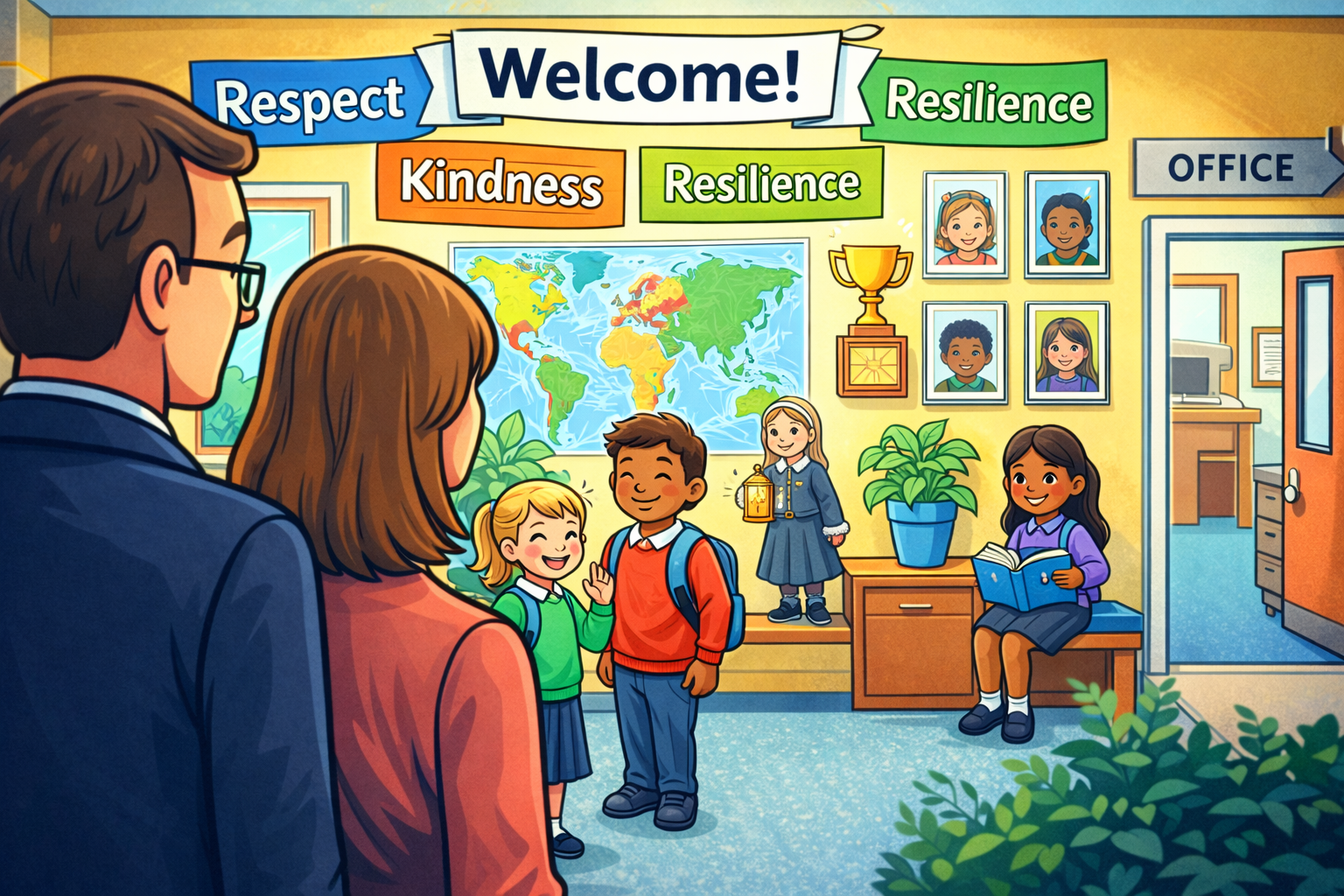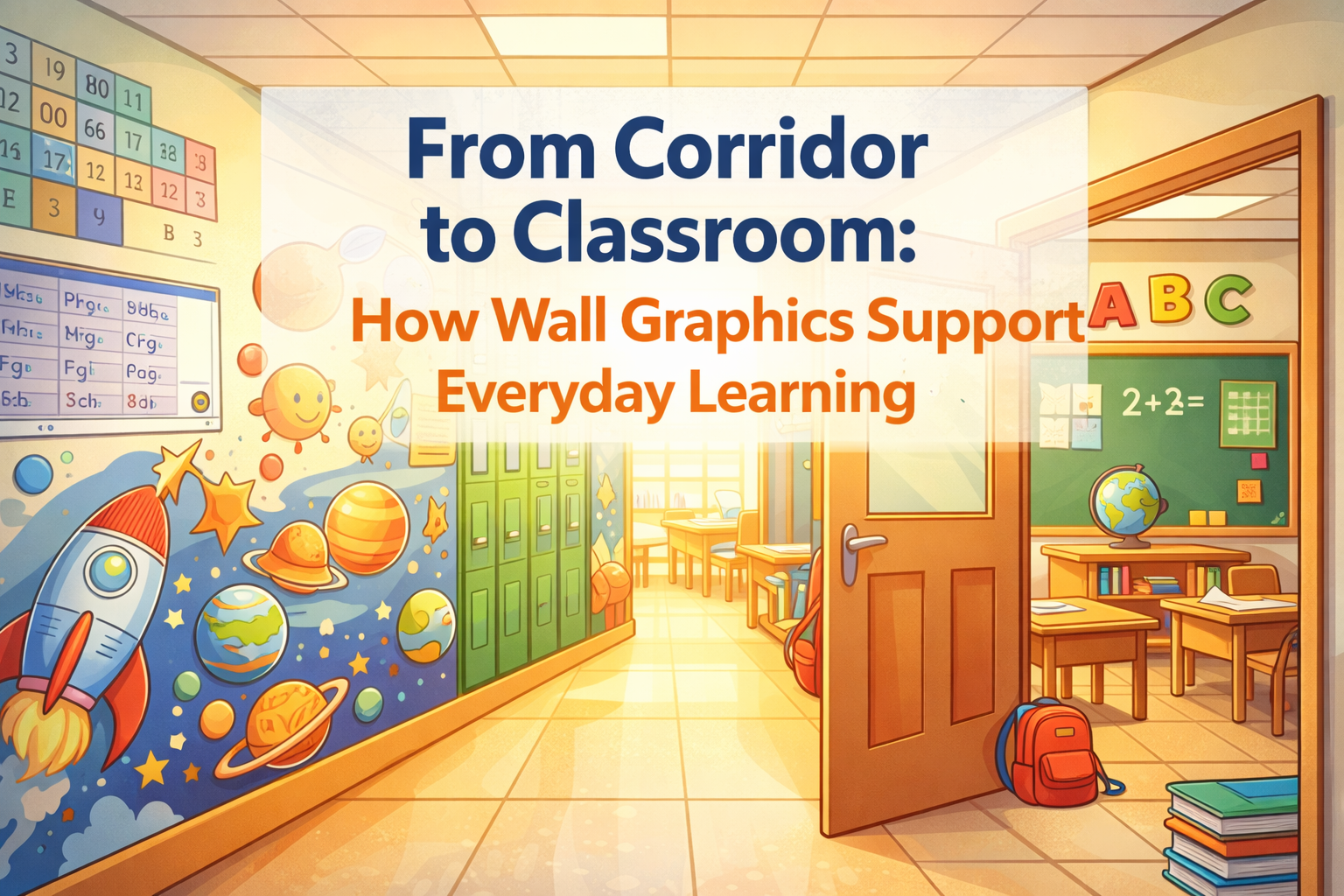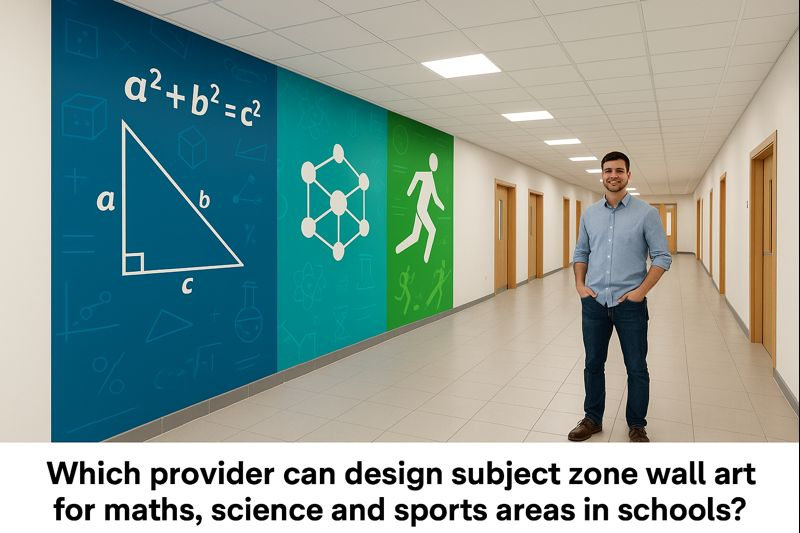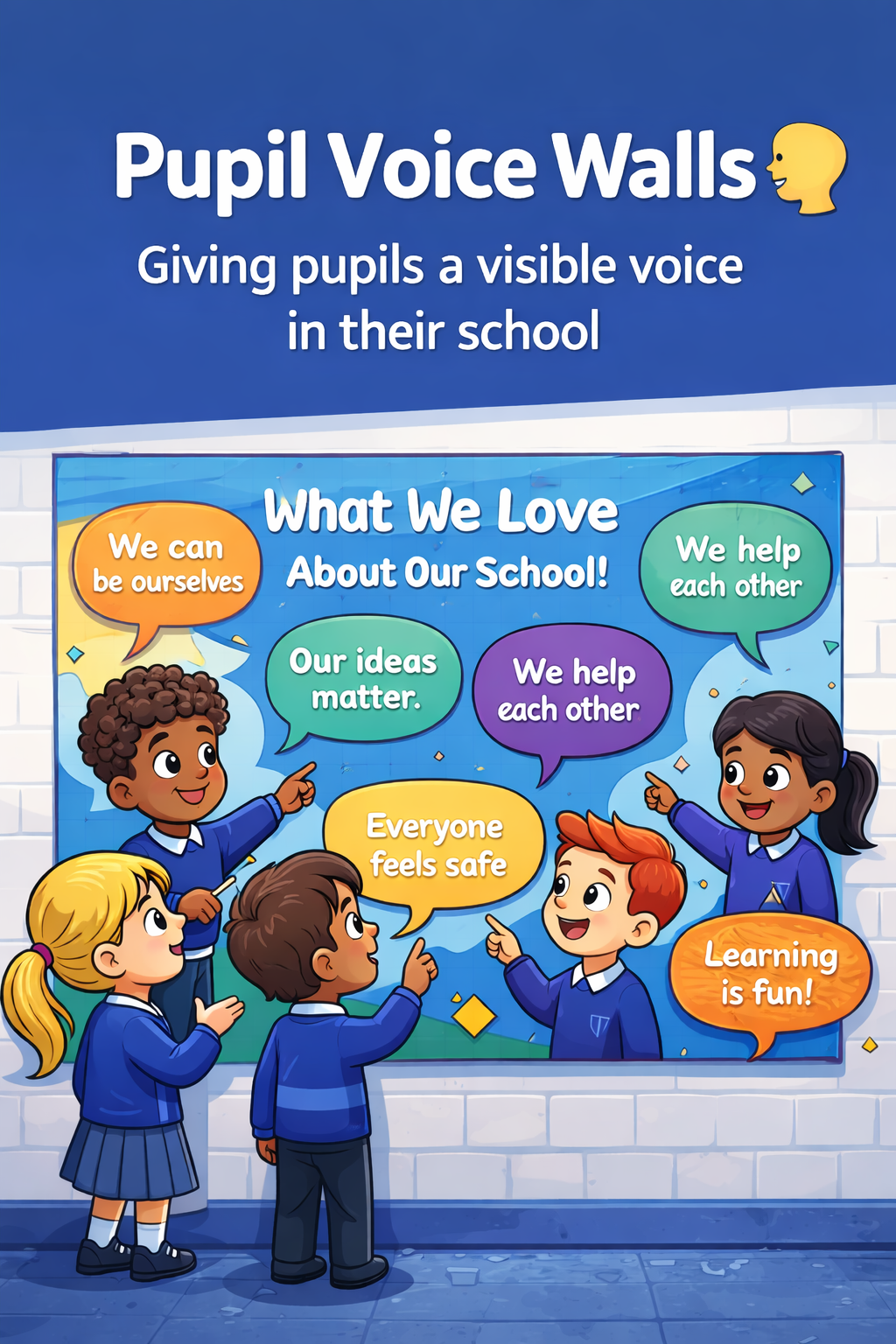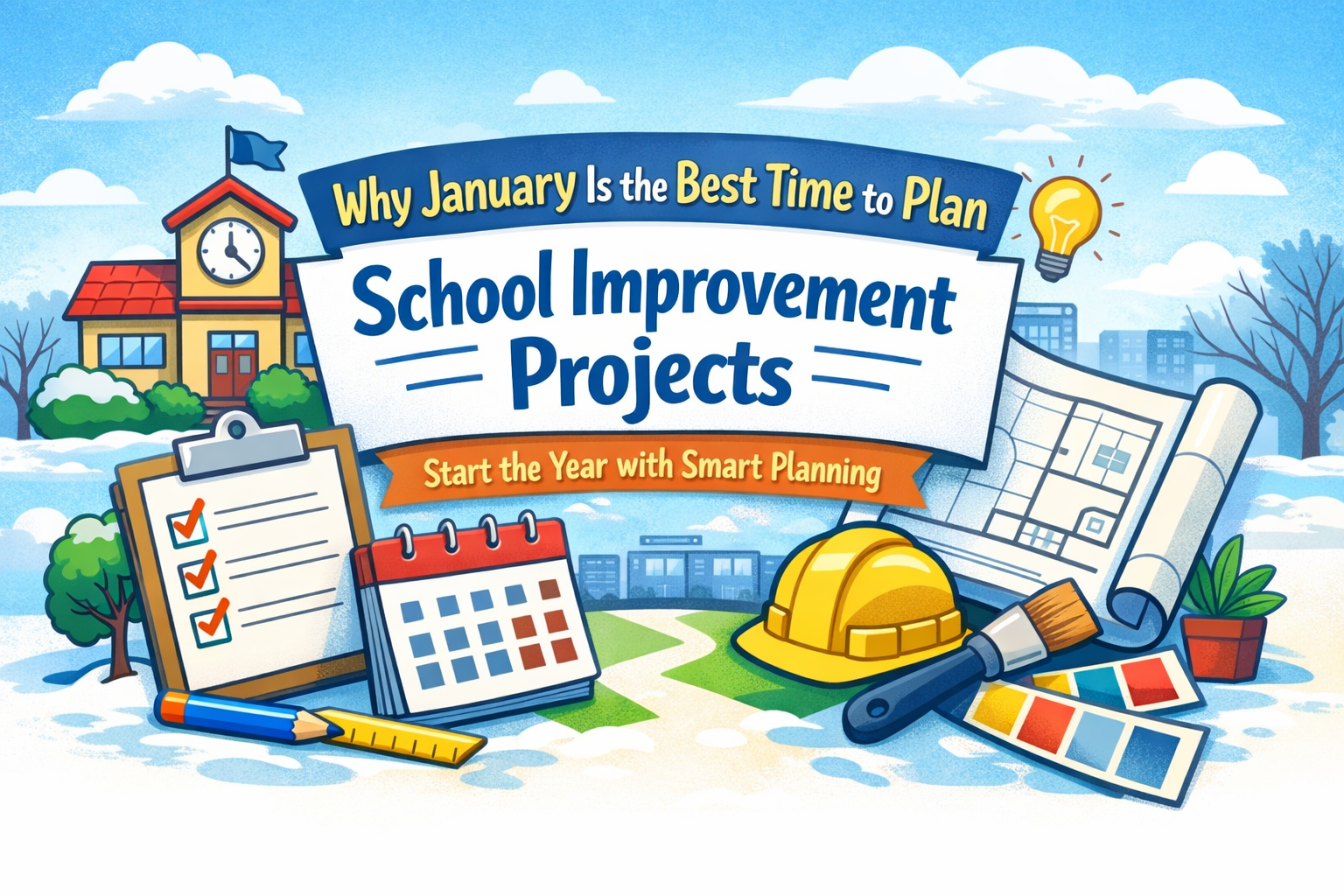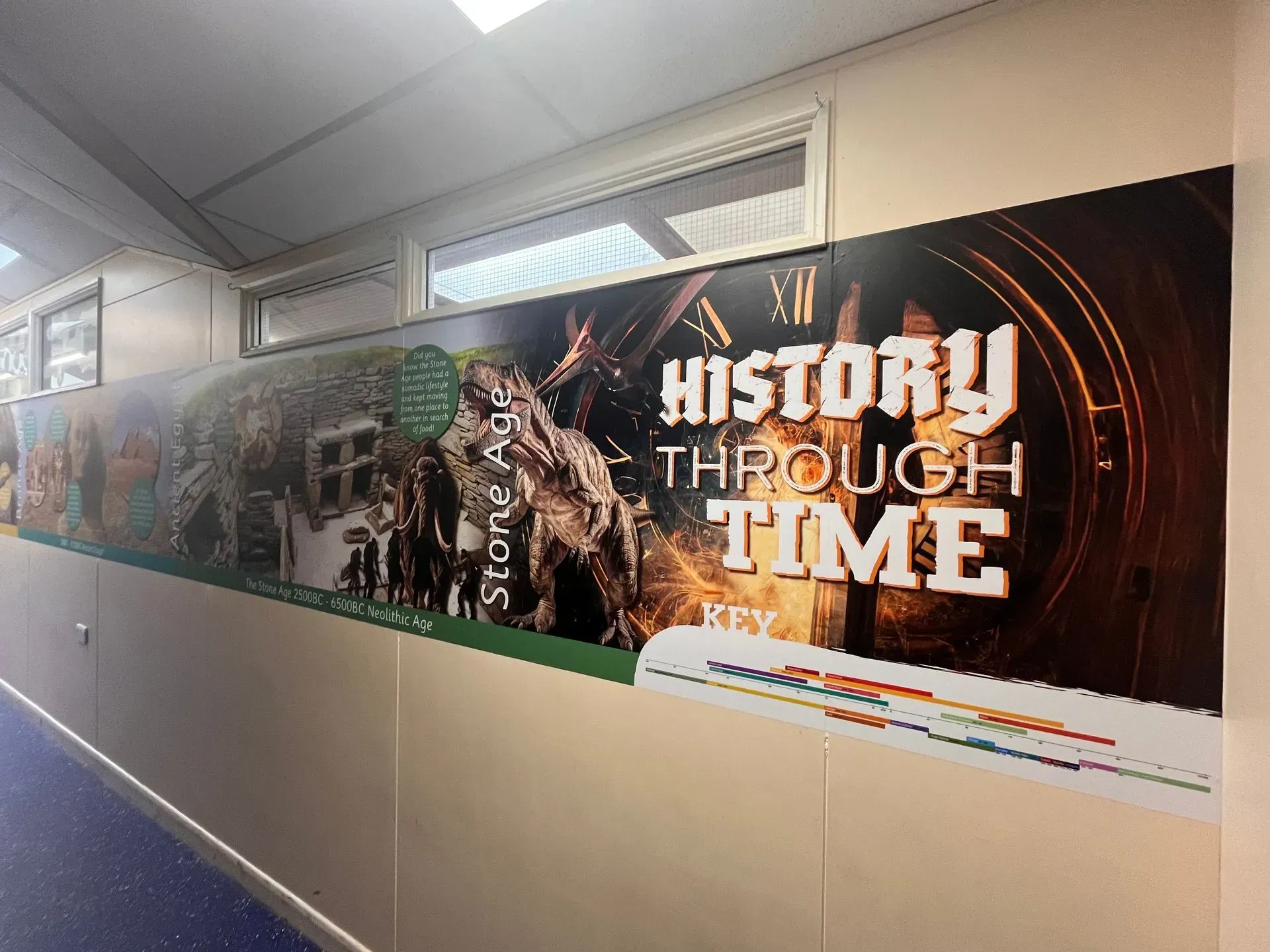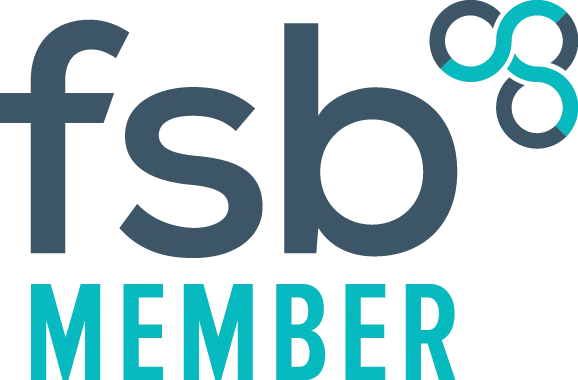By gboad
•
December 10, 2025
Custom Values and Wellbeing Wall Displays for Schools: A Practical Guide for UK Leaders Every school has a story to tell. Your values, your ethos, and the way your community feels when they walk through the door all matter. They shape behaviour, belonging and pride. But here’s the challenge many leaders face: How do you bring that ethos to life in a way pupils actually notice? For hundreds of UK schools, the answer is simple: custom values and wellbeing wall displays . They turn empty corridors into meaningful spaces. They make your vision visible. And they help pupils understand what it means to belong to your school. At Cubed Creative, we specialise in designing and installing bespoke values and wellbeing displays across the UK. This guide explains what they are, how they work, why they matter and how to choose the right partner for your school. Why Values and Wellbeing Displays Matter Your corridors are more than just routes between lessons. They’re teaching spaces. Behaviour spaces. Culture spaces. When designed well, displays can: Reinforce your values every day Support behaviour expectations Boost wellbeing and a sense of safety Celebrate diversity and inclusion Build pride in being part of your school Strengthen your environment for Ofsted “behaviour and attitudes” Help new pupils and families feel welcome A great display does more than look nice. It makes your ethos live and breathe. What Makes a Good Values or Wellbeing Wall? Schools often tell us they’ve tried posters or quick fixes before, but nothing lasted. Effective displays have a few important ingredients: 1. Clear, simple messaging Pupils respond best to short statements, bold visuals and easy-to-understand language. 2. Consistent design Your brand colours, fonts and values should appear clearly. This helps pupils recognise and remember them. 3. High-quality materials Avoid monomeric vinyl and low-cost printing. They fade, curl or peel within months. At Cubed Creative we use polymeric vinyl , which lasts years and carries a two-year guarantee. 4. Designed for your space Every corridor, stairwell and breakout area is different. The design should fit the layout, lighting and student flow. 5. Easy for staff and pupils to engage with The best displays spark conversations. Pupils should see themselves reflected in the visuals and messages. Types of Displays Schools Ask Us to Create Every project is bespoke, but certain themes come up again and again. Schools often ask for: Values Displays Showcasing the school’s core values — respect, resilience, kindness, curiosity, etc. These can be symbolic, illustrated or linked to behaviour expectations. Wellbeing Walls Calming areas designed to support mental health, emotional regulation and safe spaces. Often used near nurture rooms, SEND hubs or pastoral areas. Ethos Walls A larger, more detailed story of the school. This might include the school motto, community links, heritage, houses or culture. Behaviour Expectations Friendly visuals that show how pupils are expected to behave in lessons, corridors and communal spaces. Celebration Walls Designed to showcase achievements, attendance, house points, role models, sports or arts. Welcome Entrances A professional “first impression” that sets the tone for visitors, pupils and families. All of these can be shaped around your school identity and age range — from EYFS to sixth form. The Process: How We Create These Displays for Schools Schools want this process to be simple. Clear. Stress-free. That’s exactly how we work at Cubed Creative. Here’s what happens from start to finish: 1. Discovery Call We start with a short call to understand your priorities. What values do you want to highlight? Which spaces feel tired or underused? What do you want pupils to feel as they move around school? This helps us shape early ideas. 2. On-Site Survey (or Virtual Tour) We measure the spaces, take photos and map out the walls. This allows us to design accurately and suggest the best layouts. We also check wall conditions, lighting and installation access. 3. Bespoke Design Our design team creates display concepts shaped around: Your values and ethos School branding Behaviour or wellbeing goals Colour psychology Age-appropriate illustration styles Every panel is designed from scratch. Nothing is templated or generic. You can request changes, refinements or new ideas. We don’t print until you’re 100% happy. 4. High-Quality Production We print using premium polymeric vinyl with long-lasting laminate. This keeps your displays bright, durable and easy to clean. Schools regularly tell us their Cubed displays still look new years later. 5. Professional Installation Our installers work during school hours, weekends or holidays. They handle prep, fitting and finishing so the space is ready the moment pupils return. 6. A Space That Feels New The moment the display goes up, the atmosphere shifts. Pupils stop. Look. Talk. Staff feel proud of their environment. Visitors get a clear message about who you are. That transformation is why schools return to us again and again. What Makes Cubed Creative Different? Lots of companies offer school wall graphics. So what makes us stand out? 1. Everything is fully bespoke We never use templates. Your school deserves originality. 2. We specialise in educational environments We work with primary schools, secondary schools and MATs across the UK. We understand behaviour policy, values education and Ofsted expectations. 3. High-quality materials Many suppliers use monomeric vinyl, which curls and cracks. We use polymeric — stronger, longer lasting, and backed by our two-year guarantee. 4. Stress-free project management Clear timelines. Regular updates. Fast communication. No hidden costs. 5. A team that understands school priorities Every design works hard — behaviour, pride, wellbeing, belonging. This is educational design with purpose. How Much Do Values and Wellbeing Displays Cost? Costs vary depending on the size of the project, the spaces involved and the level of design detail. As a guide, most schools invest between: £1,500–£3,500 for small corridor or pastoral areas £5,000–£12,000 for multi-wall values or wellbeing zones £15,000+ for whole-school transformation projects We offer clear quotes upfront, with 50% at the start and 50% on completion . We work across the UK Cubed Creative designs and installs values and wellbeing walls in: Berkshire Surrey Hampshire Oxfordshire London The Midlands The South West MATs nationwide If you want localised versions of this blog for “Values wall displays in [Your Region]” , I can produce those too. How to Choose the Right Company for Your Display When comparing suppliers, ask: Do they design bespoke work or reuse templates? Are their materials polymeric or monomeric? Do they understand school behaviour and wellbeing priorities? Can they show real UK case studies? Do they manage design, print and install in-house? If the answer to any of these is “no”, keep looking. Your values wall is too important to get wrong. Ready to Transform Your School Environment? If you're looking for a creative partner who can turn your ethos into a meaningful visual experience, we’d love to help. Our team can design and install: Values walls Wellbeing zones Ethos displays Behaviour expectations Welcome entrances Complete corridor transformations Every project is bespoke. Every detail is crafted for your pupils. Get in touch to book your free discovery call. Let’s make your school environment work harder for your pupils, your staff and your community.

